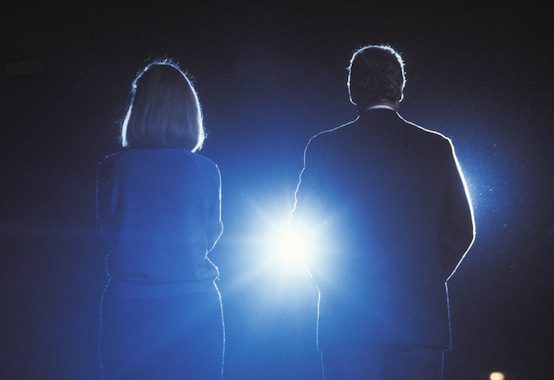Hillary and the Democratic Coalition

I’ve been enjoying the back-and-forth between Ross Douthat and Matt Yglesias over the true strength of the Democratic coalition. I thought Yglesias was getting the better of the argument in the first round, but in his most recent contribution I think Douthat lands a blow on himself, whether he realizes it or not. Here’s the last paragraph of Douthat’s post from this morning:
I would add, as a coda, I’m not at all persuaded by Yglesias’s initial premise either — the idea that Clinton’s polling advantages are the result of ideological unity, rather than a case of her brand covering over disagreements that would matter more if she weren’t running. Give me an Andrew Cuomo-versus-Elizabeth Warren tilt for the nomination, for instance, and I’d wager that all manner of intra-Democratic divisions would suddenly matter much more than they seem to today. For that matter, give me a candidate exactly like Hillary who doesn’t have her mystique and history, and it’s easy to imagine the issues she’d get challenged on. (Let’s just say there’s a reason Robert Kagan likes her.) I agree with Yglesias that the Democrats are relatively unified, especially by their party’s historical standards … but it’s her aura that’s sealing that unity, rather than the other way around.
Emphasis mine.
I think Douthat is entirely right about the point I bolded. Indeed, I’d go further: without her mystique, she’d be a long-shot for the nomination. Consider her resume. First Lady is a ceremonial post. Her one substantial task in that post, organizing health care reform, was a political failure of the first order. Next, she was Senator from New York, where she compiled a respectable record of constituent service, but did not distinguish herself either as a legislator or in intra-party policy debates. Next, she was a failed Presidential candidate. And finally, she was Secretary of State, where, again, you really have to squint to see a substantial record of accomplishment. And the State Department hasn’t been a stepping-stone to the White House for quite some time. She’s an organized and disciplined politician, but she’s rarely noted for her political charm or acumen.
The one thing that distinguishes her from your typical Democrat is that she is substantially more hawkish, having taken the hawkish side in essentially every political debate from Bosnia and Kosovo through Afghanistan and Iraq and into the Obama-era debates over Libya, Syria and Ukraine. If she weren’t Hillary Clinton, that fact would not only make her a long shot; it would probably be disqualifying.
But I think that cuts against his ultimate point, that it is only Hillary Clinton’s mystique that is holding the coalition together. On the contrary, it’s the high degree of policy consensus, combined with a steadily-strengthening conviction of the perfidy of the opposing party, that holds the Democratic coalition together. The mystique is what holds the Clinton campaign together, not the party.
If Hillary Clinton had died in 2013 after sustaining that concussion, there would be a real tussle within the Democratic Party over who is best positioned to lead the party to another Presidential victory, and potentially a real debate over how far to the left to lean on economic issues. But I have a hard time picturing the kind of debate over fundamental direction that characterized the 1984, 1988 or 1992 Democratic races, or the 1976 or 1980 GOP contexts. In Hillary Clinton’s absence, the 1988 Republicans would seem to me to be a likely model for what we’d expect from Democrats leading up to 2016.
Instead, it’s overwhelmingly likely that Clinton will be the nominee. And she probably has an as-good or better shot to win the Presidency as any other Democrat. But what then? The biggest risk to the future of the Democratic coalition is events, and the decisions future Democratic Presidents make to respond to them. Given her hawkish inclinations, it may be that, far from being what holds the Democratic coalition together, Hillary Clinton’s decisions in office, if she becomes President, could be a significant risk factor for the future of that coalition. And an entirely avoidable one, were it not for that mystique.
Comments